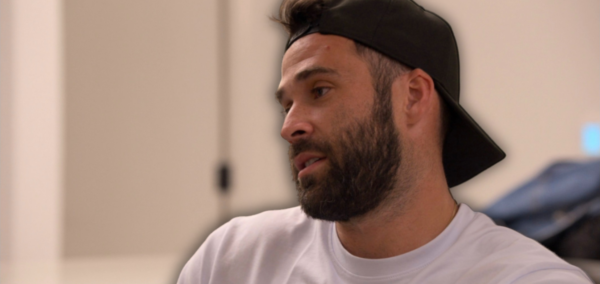Bristol Uni Vice-Chancellor ambushed by PETA activists over ‘cruel’ animal testing
Activists interrupted her speech and called for the end of ‘disgusting’ forced swim tests
Yesterday (27th September), Bristol University’s vice chancellor, Evelyn Welch, was ambushed by PETA activists calling for the end of the highly controversial “forced swim” test, while giving a speech at Yale.
The VC was giving a talk at the Yale Center for British Art, discussing 17th-century beauty cultures in art, when two activists stormed the stage.
Holding signs demanding the University of Bristol “ban animal torture”, they addressed the professor and asked her to stop the “insane” swim tests.
We’re squeaking up for mice & other small animals ✊
Today we joined @PETAUK’s campaign by disrupting Vice-Chancellor Welch’s speech at @Yale to demand an end to the forced swim test at @BristolUni. pic.twitter.com/RbNSA182tw
— PETA (@peta) September 27, 2024
In footage shared online, one protestor runs to the stage from the audience and pulls the microphone away from Professor Welch during her speech. The vice-chancellor then attempts to pull the microphone back, whilst the woman speaks into it and describes the forced swim tests as “really, really cruel”.
Speaking to Professor Welch using the microphone, she said: “Super quick, vice-chancellor Welch, we’re just asking you to please stop making rats force swim at the University of Bristol, it’s insane and really really cruel.”
Professor Welch continues to hold onto the microphone as the woman speaks and can be heard saying “sorry”. Another protestor can then be seen moving to the front of the stage holding a banner which reads “University of Bristol Ban Animal Torture”.
The male activist then begins to explain the tests to the crowd: “Terrified rats are forced into inescapable beakers of water where they are frantically swimming to save from drowning before they are eventually decapitated.
“This experiment is irrelevant to human mental health conditions.”
Both protestors then walk away from the front of the stage, chanting: “Vice-chancellor Welch, end swim tests now.”
Addressing the audience whilst being escorted out, they said: “I mean seriously let’s do the right thing. We don’t need to be hurting anybody, including rats.
“If you guys were drowning, if you were in trouble, you’d hope that somebody speaks up for you.”
As Professor Welch begins to continue her talk after the activists had been escorted out, footage continues as a man in the audience interrupts her. Addressing the vice-chancellor, he stands up and calls the practice “disgusting”.
“That’s awful, that’s actually terrible, I’m sorry. I can’t stay here, forcing rats to swim and then drown? That’s disgusting, why would you do that to animals?”
He continues to talk at the vice-chancellor whilst the auditorium: “There’s modern human methods available, there’s absolutely no need, I’m severely disappointed, do better Chancellor Welch, that’s disappointing.”
Then, another individual addresses vice-chancellor Welch, asking, “Does this really happen, are you really torturing animals? I came here for the beauty but not for this.”
Uploaded to X by PETA, the People for the Ethical Treatment of Animals, a video of the protest was captioned: “We’re squeaking up for mice and other small animals.
“Today we joined @PETAUK’s campaign by disrupting Vice-Chancellor Welch’s speech at @Yale to demand an end to the forced swim test at @BristolUni.”
This is another development in a series of protests carried out by PETA, who has been campaigning against Bristol University since 2021.
The forced swim test involves placing rats or mice in an inescapable long cylinder of water and measuring their response to stress. It is used to study the impact of potential antidepressants on behavioural despair.
The university has previously received vocal criticism from PETA, who deemed it “bad science”. Scientists at the Medicines and Healthcare Products Regulatory Agency (MHRA) have also claimed that it is “no longer considered a model of depression”, concluding that it cannot predict the efficacy of new antidepressants.
Both PETA activists and Bristol students have been protesting the issue over the last few years. In March 2023, a group of students staged a sit-in at Beacon House after the university decided to renew its license to test “a total of 4,000 rodents for a further five years”.
In March this year, the university’s decision to turn down an offer of £24,000 from PETA to drop the practice faced criticism, and shortly after a demonstration took place outside Beacon by a “mad scientist”.
PETA has critiqued how Bristol Uni is “one of the last remaining institutions in the UK to still conduct these cruel, obsolete tests – and in the largest numbers”.
Over the summer, the campaign continued, with an ambush of a reception hosted by Professor Evelyn Welch in Hong Kong, as well as more notable figures speaking out on the matter.
Anjelica Huston, an American actress most known for her role as Morticia Addams in The Addams Family, sent the vice-chancellor a letter last month, urging her to end the forced swim test.
This comes after other celebrities, including Will Poulter, Joanna Lumley, Mark Rylance and Richard E. Grant, have all urged the university to stop this practice.
A University of Bristol spokesperson said: “We recognise there are differing views about the use of animals in research, including some concerns around whether it is ethical.
“The University of Bristol has a successful track record of translating scientific discoveries into real-world advances. The majority of our biomedical research uses non-animal methods for example computer models, cells grown in the laboratory or human volunteers. When these methods are not suitable to address the scientific gaps, and therefore only when absolutely necessary, we use animals in research to improve our understanding of health and disease in both humans and animals. This includes cardiovascular and cancer research, diseases associated with infection and immunity and, in the case of forced swimming, advances in the understanding of stress-related disorders.
“We are committed to a culture of openness and transparency regarding the research carried out here and make publicly available short summaries of all the projects approved at the university. Details relating to the number of animals used annually and case studies illustrating the types of research undertaken are provided on the university’s website. We keep up to date with the latest thinking on all aspects of research using animals (including advances in welfare) and have robust and thorough ethical review processes in place for every project.”
Points of clarification/further information:
- The university does not use forced swimming procedures to model depression or to screen antidepressants
- The purpose of the research carried out in Bristol is to study the neurobiology of stress. The Animal Welfare and Ethical Review Body (AWERB) for the university has reviewed the proposed research and provided ethical approval because non-animal alternatives do not exist, and the work is important in building our fundamental understanding of the effects of stress on the brain
- The research programme is also peer-reviewed by the Grant awarding body. The conclusions of the AWERB are aligned with the recent Animal Sciences Committee report on forced swimming and the response to this report by Lord Sharpe
More information, specifically about the use of the forced swim test can be found on our website.
Yale University and vice-chancellor Evelyn Welch were approached for comment.
Related articles recommended by this author:
- Student completes 3,000km charity ride across Norway in memory of friend
- Jack O’Sullivan’s mum ‘convinced’ police are wrong and he isn’t in the water
- Jack O’Sullivan’s mother reveals ‘altercation’ at house party before his disappearance
Featured image via X and TikTok @itsjamiescorner




















